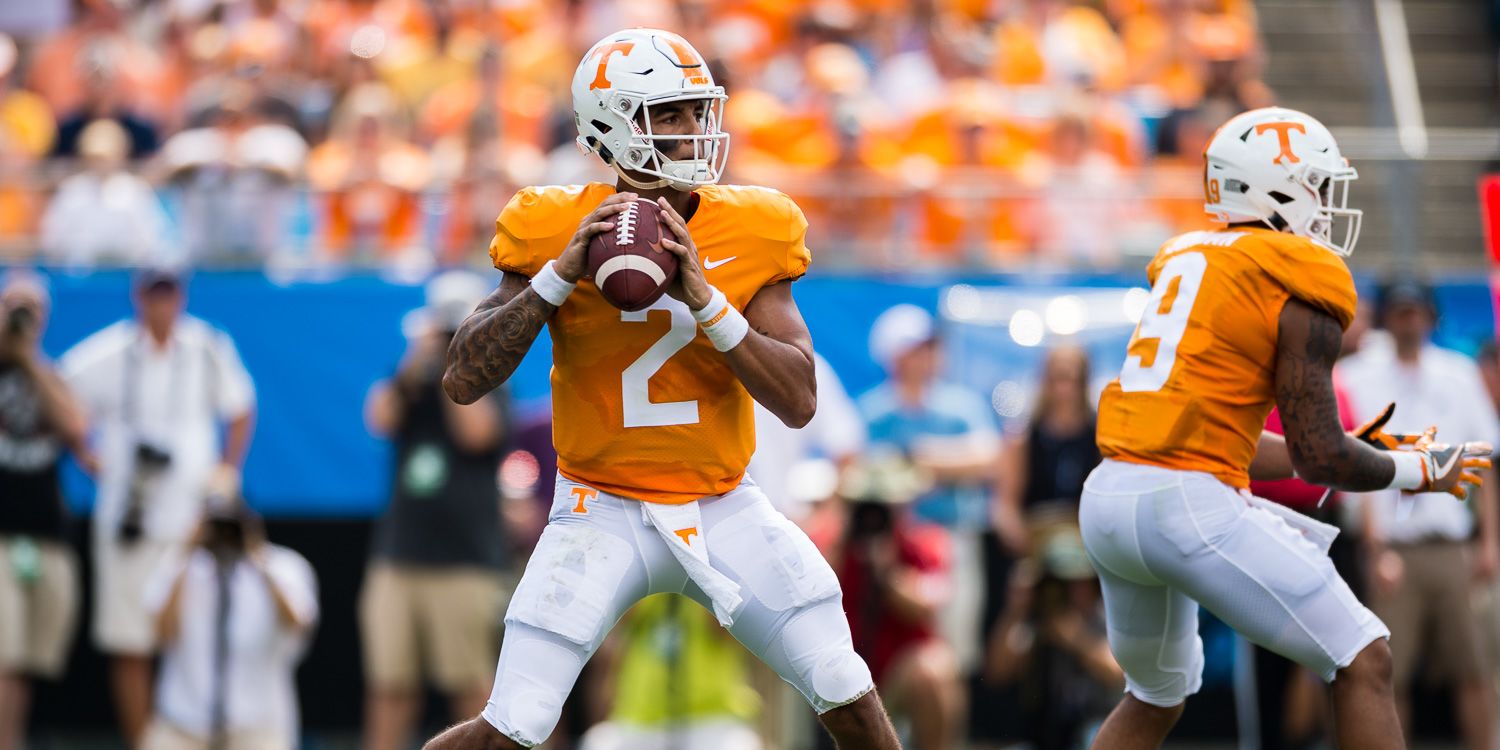Even in a 26-point loss, Tennessee’s performance against West Virginia felt like an improvement over what we saw at the end of last season, both in the stadium yesterday and in conversation today. This is, of course, what we want to believe; Jeremy Pruitt has the immediate benefit of things being blamed on Butch Jones if they go south. But just how much better was Tennessee, relatively speaking, yesterday?
The Vols averaged 4.78 yards per play, almost identical to the 4.77 they averaged last season, which was the lowest total since 2008. But the returns were incredibly diminishing last year: Tennessee averaged 6.09 yards per play in the first three games, then just 4.28 in the last nine. Six times in those final nine games the Vols averaged less than 4.5 yards per play. Yesterday was progress, even if small.
It never helps when you’re faced with 4th-and-25 on your opening drive. Tennessee allowed just one sack, which was definitely progress. But the Vols still allowed a dozen tackles for loss, a bad start for a team that gave up 7.42 per game in 2017, 121st nationally. The good news: last year the Vols lost an average of 4.1 yards per TFL. Yesterday Tennessee lost just 2.6 yards per TFL, which is especially good considering we lost 10 on the first snap of the game and five more two plays later. The Vols still have issues getting a push at the line – see 1st-and-goal at the 1 – but most of their losses were of the non-catastrophic variety.
(This is the bar when you’re 4-8 with a new head coach: hey, it wasn’t a catastrophe!)
The Vols gained 14 yards in their first 15 snaps, then 287 in their last 48 (5.98 yards per play). Again, not great…but better. The Vols still lacked explosiveness – 13 plays of 10+ yards – but were slightly better than last season when they averaged 11 such plays per game (120th nationally). There are questions as to if the Vols can block well enough to create more opportunities downfield, but the offense still moved the ball in spite of that potential problem.
Tennessee’s offense was competent.
West Virginia’s was excellent.
The Mountaineers’ 8.97 yards per play is the most against a Tennessee defense since Marcus Mariota and Oregon unleashed 9.04 in Butch Jones’ third game five years ago. We hope that turns out to be a good comparison: the 2013 Vols rebounded to defend well enough to have a chance to win against Georgia, South Carolina, Vanderbilt, etc. That initial performance was both about a new scheme and a Heisman quarterback.
Was this one? That’s the biggest question to me going forward. Will Grier made a couple of throws yesterday that were among the best I’ve seen in person from a college quarterback. It helps when you’re facing very little pressure.
The guys on the back end are young, raw, and got the final exam on the first day of class. They’ll get better. The guys up front are seniors, and there are few options behind them to begin with. Tennessee will get more from Trevon Flowers and Bryce Thompson. But it has to get more from its defensive line and pass rush. The challenge may not be as great the rest of the season; that by itself might prevent another catastrophic performance in stopping the pass. But the Vols have to find a competent pass rush to help their freshmen defensive backs.
We’ll learn a lot when the Vols face the Gators in three weeks, and because of Tennessee’s schedule and who follows Florida, it’s going to feel like an awful lot is on that game. This team is going to get better. Will they get better fast enough for Florida? Stay tuned.

